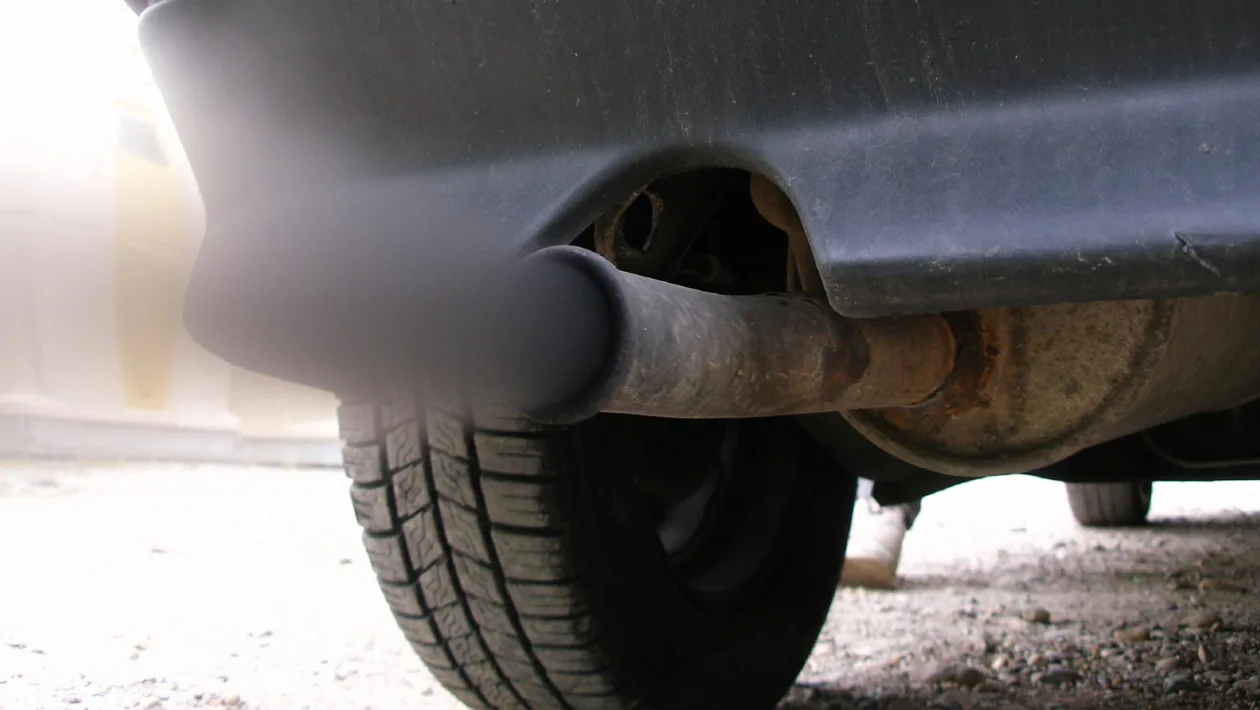Rated 4.9 out of 5 ⭐️ ⭐️ ⭐️ ⭐️ ⭐️ on Trustpilot
Diesel Particulate Filters (DPF)
What They Are, How They Work & How to Avoid Problems

Diesel Particulate Filters: What You Actually Need to Know
So you're thinking about leasing a diesel car? Great choice – they're fantastic for fuel economy and perfect for long journeys. But there's this thing called a DPF that you should probably know about before you sign on the dotted line.
Don't worry, I'm not about to bore you with complicated car jargon. Let's have a straightforward chat about what DPFs are, why they matter, and whether they should influence your leasing decision.

What on Earth is a DPF?
DPF stands for Diesel Particulate Filter – basically, it's your car's way of being environmentally responsible. Think of it as a mini waste management system that catches all the sooty nasties that would otherwise come out of your exhaust pipe.
Back in the day, diesel cars were known for belching out black smoke. Modern diesels are much cleaner thanks to these clever filters that trap particulates (that's the scientific name for "tiny bits of crud") before they escape into the air.
The Catch (There's Always One, Right?)
Here's the thing – like any filter, a DPF eventually fills up. And unlike the filter in your hoover that you can just empty into the bin, a car's DPF needs to clean itself through a process called "regeneration."
This is where some drivers run into trouble. The filter needs to get hot enough to burn off all the captured soot and your car needs the right conditions to complete this process.
How Does the Filter Clean Itself?
Your car actually has two ways of handling this cleaning process:
Passive regeneration happens naturally when you're cruising at higher speeds. Hit the motorway for a good 30-minute stint at steady speed, and your exhaust gets hot enough to burn off the accumulated soot.
Active regeneration kicks in when your car realises the filter's getting full but hasn't had a chance to clean itself naturally. The engine will adjust the fuel injection to increase the exhaust temperature and burn off the soot. You might notice slightly higher fuel consumption during this process, but it's usually pretty quick.
The problem? If you keep interrupting active regeneration (by taking lots of short journeys where the engine never fully warms up), eventually the filter gets so clogged that the car can't fix it alone. That's when the warning lights appear, and your wallet starts to feel nervous.

Keeping Your DPF Happy
The good news is that avoiding DPF issues is pretty straightforward if you match your car to your lifestyle. Here's how to keep things running smoothly:
Give your diesel some exercise on the motorway. Try to include a good 30-minute run at speeds above 50mph at least once a week. Think of it as taking your car for a brisk walk – it needs the exercise to stay healthy.
Don't ignore warning lights. If your dashboard shows a DPF symbol (usually looks like a little exhaust with dots in it), your car is telling you it needs a longer drive to complete regeneration. Take it on the motorway for a bit rather than continuing with short trips.
Use the right fuel and oil. Premium diesel fuels often contain additives that help reduce soot build-up. When getting your car serviced, make sure they use the correct low-ash oil that's compatible with DPFs.
When Things Go Wrong: The Cost
If you do end up with a blocked DPF that can't regenerate itself, it's not the end of the world – but it might feel like it when you see the bill.
A professional DPF cleaning service usually costs between £100-£400 depending on where you go. If the filter is damaged beyond cleaning and needs replacing, you're looking at £1,000-£3,500.
The kicker? Most lease agreements won't cover DPF issues if they're caused by your driving style. They're considered user error rather than a mechanical fault.
Should You Still Consider a Diesel Lease?
Absolutely – but only if it matches your driving habits. Diesel cars are brilliant in the right circumstances.
Diesel could be perfect for you if:
Your regular commute involves a decent stretch of dual carriageway or motorway
You regularly drive long distances for work or leisure
You need good fuel economy for high mileage (15,000+ miles a year)
You want that lovely torque for towing or carrying heavy loads
You might want to look at alternatives if:
Most of your driving is short urban trips
You rarely go on longer journeys
You mainly drive in stop-start traffic
You're concerned about potential low emission zone charges
The Bottom Line
DPFs aren't a deal-breaker for leasing a diesel – thousands of people drive diesels without ever having an issue. But they do mean you need to match your car to your lifestyle.
Think of it like getting a dog – some breeds need lots of exercise and space, others are happy in a flat with short walks. Get the wrong match, and neither of you will be happy!
If you do lots of motorway miles, a diesel with a DPF will serve you brilliantly. If you're mainly nipping to the shops or doing the school run, you might find a petrol, hybrid, or electric car gives you fewer headaches.
Still not sure what's right for you? Give us a shout – we love talking about this stuff (perhaps a bit too much) and can help you find the perfect match for your driving habits.
Here are our most frequently asked questions when it comes to Diesel Particulate Filters.
What is a DPF and why is it important?
A DPF captures and stores exhaust soot to reduce emissions from diesel engines. It's crucial for meeting environmental regulations and improving air quality.
How does a DPF work?
The DPF traps soot particles as they pass through the exhaust system and periodically burns them off in a process called regeneration, keeping the filter clear and functioning.
What causes DPF blockage?
Short trips where the engine doesn't reach optimal temperature can prevent the DPF from regenerating, leading to blockages.
How can I maintain my DPF?
Regular longer drives at higher speeds can help the DPF regenerate properly. It's also important to keep up with vehicle maintenance schedules.
What happens if my DPF is removed or fails?
Removing or tampering with the DPF is illegal and can result in MOT failure. A malfunctioning DPF can lead to reduced performance and potentially costly repairs.
Can a DPF be cleaned or does it need replacement?
DPFs can often be cleaned, which is a more cost-effective solution than replacement. However, in cases of severe blockage, replacement might be necessary.
What is DPF regeneration and how is it triggered?
Regeneration is the process of burning off accumulated soot. It can be passive (occurs naturally during long drives) or active (initiated by the vehicle's ECU under specific conditions).
How do I know if my DPF is blocked?
Warning lights on the dashboard, decreased fuel efficiency, and reduced engine performance can indicate a blocked DPF.
Does driving style affect DPF longevity?
Yes, frequent short journeys at low speeds can prevent proper DPF regeneration, leading to quicker blockage and reduced lifespan.
Are there any additives I can use to help maintain my DPF?
Some fuel additives claim to assist in keeping the DPF clear by lowering the temperature at which soot burns off, but it's essential to use them cautiously and follow manufacturer recommendations.
What's next?
Enjoyed this? Read our latest news

Huge New Grant Slashes Electric Car Prices by Up to £3,750
The UK’s latest £3,750 electric car grant is expected to drive lease prices down across popular EV models. Here’s how the new incentive could save you money on your next lease.

Hyggemarketing: Reliable Nationwide Travel for a Growing Agency
Jack Vernon, CEO of Hyggemarketing, shares how his VW Caddy lease from Motorlet transformed his travel experience—bringing comfort, professionalism, and room for his beloved Akita, Orla.

John Worth Group: A Seamless Fleet Leasing Experience with Motorlet
John Worth Group, a renowned interiors specialist, partnered with Motorlet to streamline their management vehicle fleet. Over two years, they've experienced professional service, timely deliveries, and competitive pricing, reinforcing their trust in Motorlet's leasing solutions.
Customer Stories
We've helped over 1,000+ customers find their dream car, hear what they have to say.
Read more reviews“As usual, top class service. The team at Motorlet provided first class service from beginning to end with the friendly helpful expertise of Josh and Wendy. Will continue to use their services as I have done for the past six years...” Keep reading
Diane Parish | Audi Q5

New deals weekly
Subscribe to get the latest offers, guides, new, and more, straight to your inbox.







